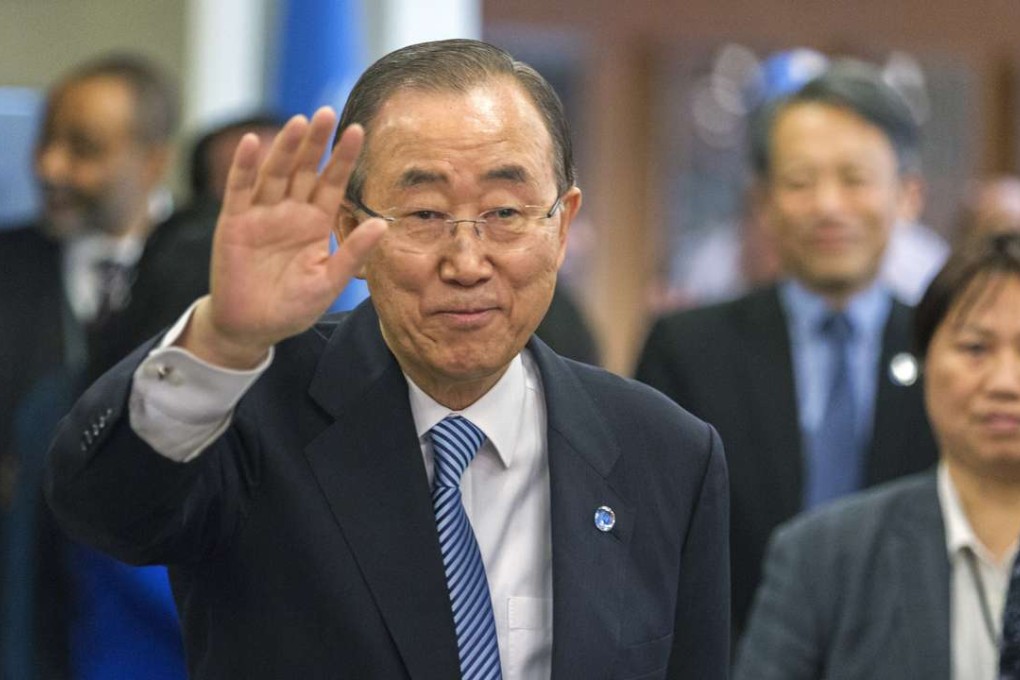Progress on climate, turmoil in Syria: UN chief Ban Ki-moon leaves with mixed record after 10 years in charge
Ban has expressed frustration at the failure to end Syria’s war, now in its sixth year, and conflicts in South Sudan, Yemen, Central African Republic and Congo

Ban Ki-moon ended 10 years at the helm of the UN lamenting the “fires still burning” from Syria to South Sudan but buoyed by a global agreement to combat climate change and new UN goals to fight poverty and inequality.
As Ban he left UN headquarters on Friday for the last time as secretary-general, he told staff that he feels “like Cinderella – tomorrow at midnight, everything changes”. Ban will be replaced by former Portuguese prime minister Antonio Guterres.
Keep the focus on people – on people’s rights and people’s dignity
Ban also urged staff members to stay focused on advancing UN development goals and working to address issues ranging from climate change to gender empowerment: “Keep the focus on people – on people’s rights and people’s dignity.”
While he has seen collective action improve millions of lives, Ban has expressed frustration at the failure to end Syria’s war, now in its sixth year, and conflicts in South Sudan, Yemen, Central African Republic and Congo, to name a few.
And in rare criticism of world leaders, he blamed unnamed presidents, prime ministers and monarchs for the turmoil in the world today – and expressed disappointment many care more about retaining power than improving their people’s lives. He singled out Syria, saying he can’t understand why it is being held hostage to “the destiny” of one man, Bashar al-Assad.
John Bolton, who was US ambassador to the UN when Ban was selected to be secretary-general, said President George W. Bush’s administration supported him because “we wanted someone who would do what the member governments wanted” – and not take the lead on issues and act as the world’s top diplomat like then-secretary-general Kofi Annan.